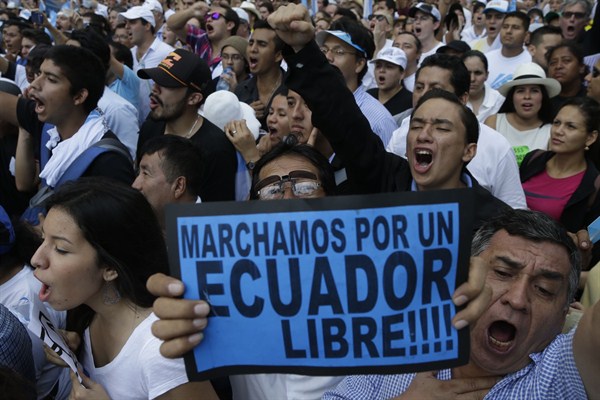Unlike his predecessors, Ecuador’s president, Rafael Correa, has enjoyed consistently high approval ratings since coming into office in 2007. And while support for some other regional leaders, hit hard by economic slowdowns and corruption scandals, are nearing rock-bottom levels, Correa’s rule has also been relatively free of political turbulence. But over the past several weeks, that has changed.
Growing protests reveal that many Ecuadoreans are increasingly disaffected and no longer afraid to take to the streets and openly defy a self-assured president intent on carrying out his so-called citizens’ revolution. The biggest protests came late last week in the country’s largest city, Guayaquil, where thousands of Ecuadoreans marched in the streets and called for Correa’s resignation. Guayaquil’s long-time mayor, Jaime Nebot, one of Correa’s fiercest critics, led the demonstrations and warned that Correa was leading Ecuador down the path of nearby Venezuela.
Protests first hit Ecuador in early June following the announcement of two proposed bills that would hike taxes on property appreciation and inheritance—initially up to 77 percent on the latter, though Correa later lowered that to 45 percent. In keeping with his populist rhetoric aimed at the country’s traditional elite, Correa argued that the taxes would only affect the rich, enabling him to continue financing development and infrastructure projects to help the poorest sectors. Indeed, the law’s official name is “the wealth redistribution law.”

